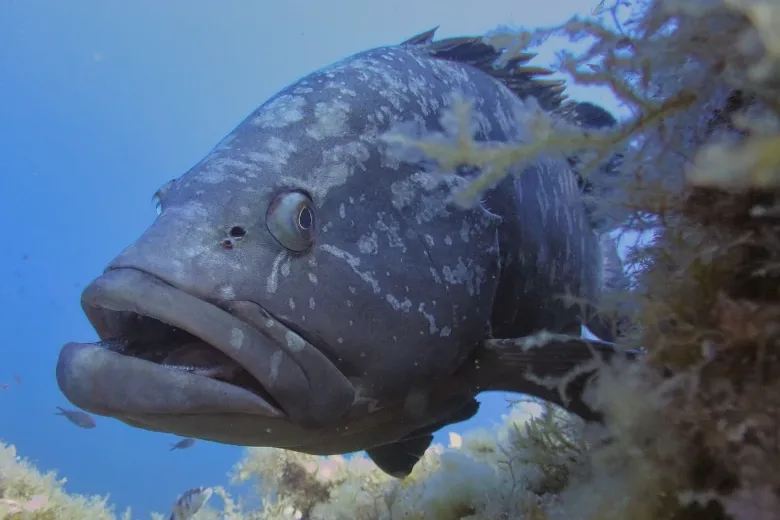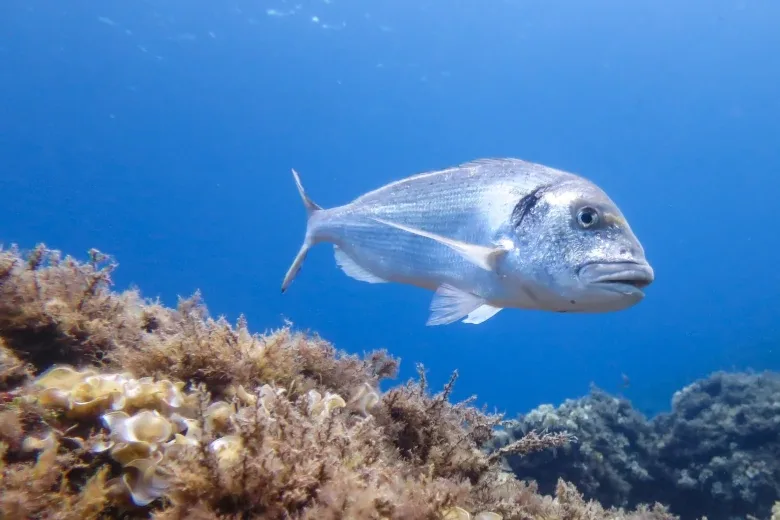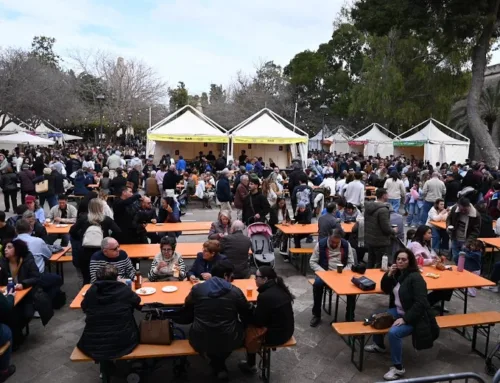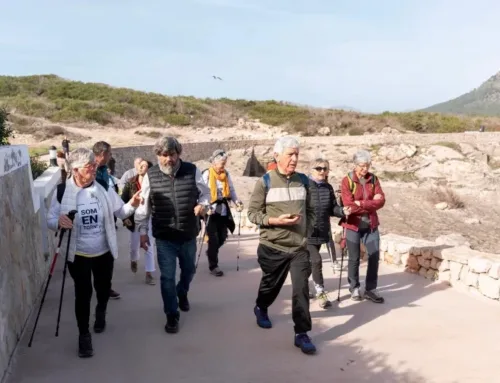The Conselleria d’Agricultura, Pesca i Medi Natural, through the Direcció General de Pesca, has set for the first time maximum catch quotas per licence and per day for several species in recreational fishing in the Balearic Islands. These restrictions apply to European seabass, gilthead seabream, common dentex, and all species of grouper. The measure, agreed upon with the island councils and the fishing sector, has been approved by the Co-management Commission for Recreational Marine Fishing and has already been published in the Official Bulletin of the Balearic Islands (BOIB).

Only one grouper per person and per boat may be caught per day. Photo: CAIB.
The Director General of Fisheries, Antoni M. Grau, highlighted that the main objective of this regulation is to ensure the sustainability of marine resources through the active participation of the sector. “This measure has been fully agreed upon with the fishing community, which had requested to be involved in the decision-making process that directly affects them,” Grau stated.
Established Quotas for Recreational Fishing in the Balearic Islands
The daily quotas set vary depending on the type of fishing. In individual fishing, which includes spearfishing, shore fishing, or boat fishing, limits apply per person. In the case of boat fishing, the restrictions affect the total number of catches allowed per boat, regardless of the number of occupants.
The daily quotas are as follows:
- European seabass (Dicentrarchus labrax): 1 specimen per person and per boat.
- Gilthead seabream (Sparus aurata): 2 specimens per person and per boat.
- Common dentex (Dentex dentex): 2 specimens per person and 3 per boat.
- Groupers (Epinephelus spp.) and Mottled grouper (Mycteroperca rubra): 1 specimen per person and per boat.
For example, on a boat with seven people, only three common dentex in total may be caught.
Future Regulations
Grau does not rule out the possibility of establishing new quotas or modifying existing ones in the future, depending on agreements within the Co-management Commission for Recreational Marine Fishing. Species such as the scorpionfish could be subject to regulation in the coming years.

Recreational fishing in the Balearic Islands is an activity with thousands of enthusiasts, generating a significant economic impact and fostering a connection with nature. According to Grau, “most people engaged in recreational fishing are concerned about the conservation and health of marine resources, which is why they want to contribute to preserving marine ecosystems.”
The Co-management Commission for Recreational Fishing
This public participation body, created in 2024, includes representatives from the fishing sector and the administration, with the aim of improving the management and sustainability of recreational fishing in the Balearic Islands. Its creation responds to a demand from the sector for greater information and a stronger voice in decisions affecting recreational fishing activities.







Leave A Comment